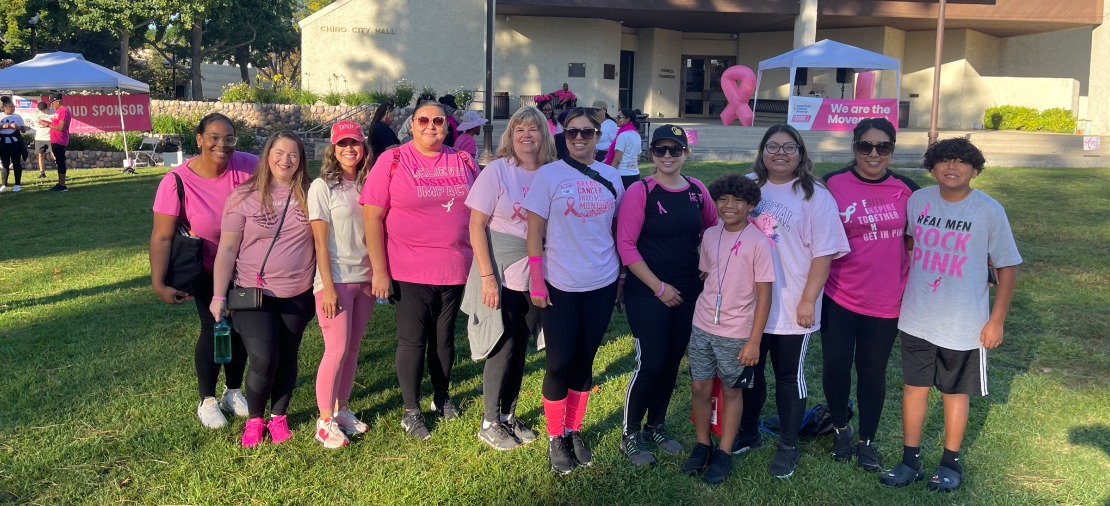Stefanie Schlosser, FNP-C, Cucamonga Valley Medical Group
“You are what you eat!” You’ve probably heard the proverbial saying more times than you care to remember.
But the phrase has its merits. It dates back nearly 200 years since French lawyer Anthelme Brillat-Savarin wrote in 1826, “Tell me what you eat, and I will tell you what you are.”
Cucamonga Valley Medical Group’s Stefanie Schlosser, a certified Family Nurse Practitioner, applies a more contemporary approach to the old saying. Schlosser encourages “nutrition for all ages” as she helps CVMG patients make healthy choices regarding their diet.
“Nutrition is for all ages – healthy nutrition for infants, for toddlers, teenagers, adults and the elderly,” Schlosser said. “CVMG is a family practice. We treat from birth through the so-called ‘golden years.’”
In today’s fast-paced lifestyle, it’s easy to make poor choices. Quick and readily accessible entrees and snacks usually don’t translate to a healthy meal.
“Overall nutrition for most people is inadequate in the world of convenience foods, pre-packed foods, frozen foods and fast foods,” Schlosser said. “Each person is not getting their recommended essential nutrients with a balance of protein, carbohydrates and fats. Many people turn to supplements and pills because they think that’s healthy. While it’s a good addition to what we should be doing on a daily basis, it’s not a substitute.”
Schlosser and CVMG work with patients to help them better understand which foods provide nutritious benefits and those that may contribute to chronic health issues such as diabetes, heart disease and obesity.
“Nutrition requirements change as we age,” Schlosser said. “Healthy lifestyles start at birth. It is important to have either breast milk or formula for infants, solid foods started at six months, then meat and vegetables as the baby progresses. Save carbohydrates in the form of fruits and any form of pasta until after nine months. Build a solid foundation.”
As children develop through teenage years, it is important to maintain a healthy diet as it relates to their growth and development. “Eat a balanced diet with focus on protein, whole grains, and vegetables, and eating a variety of food from the five food groups,” Schlosser said.
In her own household, Schlosser made nutrition a priority to her four sons during their formative years. She implemented a fun approach that made such an impression that her sons — now age 27 to 33 — are excellent, healthy-minded cooks in their own home.
“Personally, I held what we called the ‘Schlosser School of Cooking’ for my kids when they were younger,” Schlosser said. “Nutrition was a big word in our house all the time – along with beta carotene.”
“Each week one of my kids would choose a favorite meal that they wanted to cook — tacos, spaghetti, steak, shrimp,” Schlosser continued. “I took them to the grocery store. Each one got to shop, do the food prep, cook and serve. It built a great appreciation for the time and energy that it takes to make tasty, good, nutritious, home-cooked meals.”
Adults and the elderly are encouraged to decrease intake and meet only their calorie needs. Focus on lean proteins, complex carbohydrates, and healthy fats.
“Eating a variety of colorful vegetables, whole grains, and healthy fats is a good start,” Schlosser said. “Avoiding processed foods as much as possible is very important at any age.”
A lifelong commitment to good nutrition can help seniors better enjoy their golden years.
The key is to develop healthy habits at the table and stick with it. Of course, exercise and being active will complement the diet.
“Overall, nutrition is important at all ages,” Schlosser said. “Eating a variety of wholesome foods from the five food groups will help ensure that you are receiving the proper nutrition from birth through the golden years to help maintain health and wellness.”
“Eating a balanced diet and avoiding processed foods will help you have the energy to maintain a healthy lifestyle. It just takes a little quality time in the kitchen. Perhaps your own family ‘school of cooking’ will pass on family traditional recipes,” she said. “Be sure to visit MyPlate.gov for more information about nutrition for all ages.”




